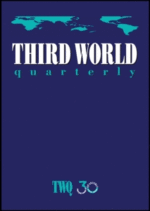The Bonn Agreement of December 2001 lays the foundations for a political transition in Afghanistan after 23 years of war. The agreement excludes the defeated party, the Taliban, while seeking to commit the remaining groups to a long-term and loosely defined peace process. With Afghan regionally based political-military groups defined largely along ethnic lines, and closely linked to external powers, rebuilding national authority will be a slow and conflictual process. Rebuilding the coercive capacity of the state is essential to overcome strong centrifugal tendencies, yet must be timed so as not to get ahead of the restoration of legitimate political authority. International assistance can support the political recovery by being conscious of the need to neutralise the 'spoilers' of the peace process. Making haste slowly in aiding economic recovery can prevent armed competition for power at the centre. To promote this kind of transition, and promote Afghan influence in the peace-building process, the international aid community must fundamentally reorient the strategies and methods of past involvement in the country.
Suhrke, Astri; Kristian Berg Harpviken & Arne Strand (2002) After Bonn: Conflictual Peacebuilding, Third World Quarterly 23 (5): 875–891.








